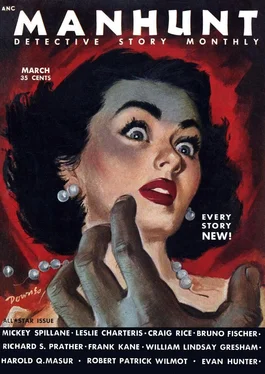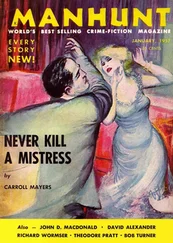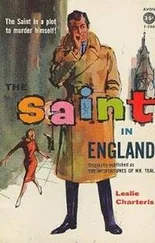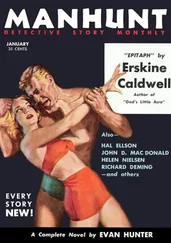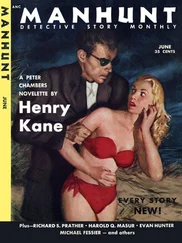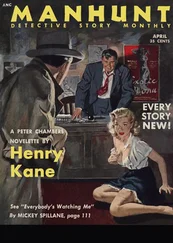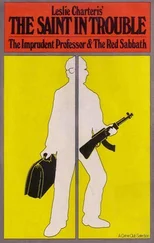Лесли Чартерис - Manhunt. Volume 1, Number 3, March, 1953
Здесь есть возможность читать онлайн «Лесли Чартерис - Manhunt. Volume 1, Number 3, March, 1953» весь текст электронной книги совершенно бесплатно (целиком полную версию без сокращений). В некоторых случаях можно слушать аудио, скачать через торрент в формате fb2 и присутствует краткое содержание. Город: New York, Год выпуска: 1953, Издательство: Flying Eagle Publications, Жанр: Детектив, на английском языке. Описание произведения, (предисловие) а так же отзывы посетителей доступны на портале библиотеки ЛибКат.
- Название:Manhunt. Volume 1, Number 3, March, 1953
- Автор:
- Издательство:Flying Eagle Publications
- Жанр:
- Год:1953
- Город:New York
- ISBN:нет данных
- Рейтинг книги:5 / 5. Голосов: 1
-
Избранное:Добавить в избранное
- Отзывы:
-
Ваша оценка:
- 100
- 1
- 2
- 3
- 4
- 5
Manhunt. Volume 1, Number 3, March, 1953: краткое содержание, описание и аннотация
Предлагаем к чтению аннотацию, описание, краткое содержание или предисловие (зависит от того, что написал сам автор книги «Manhunt. Volume 1, Number 3, March, 1953»). Если вы не нашли необходимую информацию о книге — напишите в комментариях, мы постараемся отыскать её.
Manhunt. Volume 1, Number 3, March, 1953 — читать онлайн бесплатно полную книгу (весь текст) целиком
Ниже представлен текст книги, разбитый по страницам. Система сохранения места последней прочитанной страницы, позволяет с удобством читать онлайн бесплатно книгу «Manhunt. Volume 1, Number 3, March, 1953», без необходимости каждый раз заново искать на чём Вы остановились. Поставьте закладку, и сможете в любой момент перейти на страницу, на которой закончили чтение.
Интервал:
Закладка:
The roly-poly man answered in the same dialect. His face in the light was round and soft and childish, with rimless glasses over rather prominent blue eyes. He wore a tweed coat and a round soft pork-pie hat. He talked volubly, with graphic gestures, so that Simon easily understood that he was describing the Saint’s encounter with the stocky thug, which he must have witnessed. The policeman asked another question, and the round man handed him a card from a small leather folder.
The policeman turned to the Saint.
“ Vous parlez français?”
“ Mais oui,” said the Saint easily. “This gentleman saw me trying to catch one man. There was another. Over there.”
They walked to where Simon had dropped the gaunt man. But there was no one there.
“He seems to have got away too,” he said ruefully. Then he pointed across the promenade. “But there’s the man they robbed.”
The gaunt man had taken back his knife, but it had done its work well. Its victim must have died almost instantly. His face was composed and disinterested when they turned him over.
“The briefcase which you say they took from him,” said the policeman, in French. “What happened to it?”
Simon shrugged.
“I suppose the fellow I tackled got away with it.”
“And so we shall not know the motive for the attack,” observed the round man thoughtfully.
“Without wanting to play Sherlock Holmes,” said the Saint, with a trace of sarcasm, “I should guess that it might have been robbery.”
The policeman was searching the pockets of the body. With a light touch on the arm, the moon-faced man drew the Saint a little aside.
“Restrain yourself, my friend. The police don’t like to be teased. May I introduce myself? My name is Oscar Kleinhaus. I’m fairly well known here. I’ll try to see that you have no trouble.”
“Thank you,” said the Saint, curious about the man’s interest.
The policeman was holding an Italian passport.
“Filippo Ravenna,” he read aloud. “Of Venice. Married. Fifty-one years old. Director of companies.”
“Was he a friend of yours?” Kleinhaus asked.
“I never saw him before in my life,” said the Saint.
The policeman thumbed over the pages of the passport, and pointed at one of them.
“What is this?”
Simon looked over his shoulder.
“It’s an immigrant’s visa to the United States... issued a week ago. Apparently it has not yet been used.”
“But you say you did not know him.”
“I forget how many thousands of immigrants enter the United States every year,” said the Saint, “but I assure you they are not all friends of mine.”
Again he felt a warning tug at his sleeve.
The rotund Mr. Kleinhaus addressed the policeman again in his own dialect. He appeared to be arguing that the Saint was merely an innocent bystander who had tried to catch a couple of criminals, that he should not be treated like a suspect, that the policeman would do better to concentrate on the crime. The policeman seemed to be grudgingly impressed. He turned back to the Saint less aggressively.
“Your name, please?”
Simon had grown a little wary lately of the hazards of his reputation. In Switzerland, the traditional land of peace and neutrality, he had decided to make an attempt to reduce those risks when he registered at his hotel.
“Tombs,” he said. “Sebastian Tombs.”
“Where are you staying here?”
“At the National.”
The policeman wrote down the information in a notebook.
For the first time now, there were more people walking towards them along the quai. It was late, but presently there would be the inevitable crowd.
Kleinhaus said something else to the policeman, and the policeman seemed to agree. Kleinhaus took Simon by the arm and steered him away.
“We’ll phone the station to send him some help,” he said. “We can do it from your hotel. Could you identify those two thugs?”
“After a fashion.” Simon described them as best he could, as they walked through the gardens to the back entrance of the hotel. “I suppose the detectives will want to know that, for what it’s worth.”
“I’ll pass it on to them when I telephone.” They were in the lobby. “It’ll be easier for me, speaking the lingo. And you don’t want to get mixed up in it, and spoil your vacation. I’ll take care of everything.”
Simon looked at him pensively.
“You’re very kind,” he said. “Is that just real Swiss hospitality?”
“I don’t like visitors to have bad experiences in my country,” said Mr. Kleinhaus. “Go to bed. Perhaps we shall meet again.”
He raised his round hat courteously as Simon entered the elevator.
2
The Saint never stayed awake to ask himself questions to which he could only give himself imaginary answers. He slept as if nothing had happened, as if there were no loose ends in his mind, secure in the confidence that if the incident of that night was destined to be only a beginning it would reveal the rest of itself in its own good time. Life was like that for him. He did not have to seek adventure: his problem would have been to shake off its relentless pursuit.
He had just finished breakfast in his room when there was a knock on his door.
For anyone else, he reflected as he opened the door, it would probably have been only a waiter to take away the tray. For him, it had to be a woman. And not simply a woman, but a breathtakingly lovely one.
She was in her early twenties, Simon judged, with an exquisite figure beneath the thin material of her expensive dress, and a delicately beautiful face. The thick-lashed dark eyes that came up to meet Simon’s were the kind that could kindle instantly with black fire.
She said, with very little accent: “Mr. Tombs — may I talk to you? I am Mrs. Ravenna.” Her voice had a huskiness that the Saint found extremely intriguing.
“Of course,” he said.
She came in and sat down. Simon poured himself another cup of coffee and offered her a cigarette. She shook her head, and he lit it for himself.
“I feel terribly guilty about your husband,” he said. “I might have saved him. I just wasn’t thinking fast enough.”
“At least you tried to catch the men who killed him. The police told me. I wanted to thank you.”
“I’m sorry I wasn’t more successful. But if the police catch them, I may be able to identify them. I suppose you haven’t any ideas about them?”
“I have none. Filippo was a good man. I didn’t think he had any enemies.”
“Did he have business rivals?”
“I can’t think of any. We were quite rich, but he was successful without hurting anyone. In any case, he had got rid of his interests.”
“What were they?”
“He manufactured shoes. It was a good business. But Europe today is an uncertain place. There is always fear — of war, of inflations, of unstable governments. So, we were going to America. Our quota number had just come through.”
“I know. And he was going to start a new business there?”
“Yes. He talked about it.”
“Well,” said the Saint, “the police think it was just an ordinary robbery, don’t they?”
“Yes.”
“Don’t you?”
She twisted her fingers nervously together. The taut bodice of her dress rose and fell again as she took a deep breath and let it out slowly.
“I don’t know what to think.”
The Saint stared at a plume of smoke drifting towards the ceiling. He tried half-heartedly not to recognize that his blood was suddenly running faster, in a way that had absolutely nothing to do with the young widow’s appealing beauty. But it was no use. He knew, only too well, that he was in it again — up to his ears...
Читать дальшеИнтервал:
Закладка:
Похожие книги на «Manhunt. Volume 1, Number 3, March, 1953»
Представляем Вашему вниманию похожие книги на «Manhunt. Volume 1, Number 3, March, 1953» списком для выбора. Мы отобрали схожую по названию и смыслу литературу в надежде предоставить читателям больше вариантов отыскать новые, интересные, ещё непрочитанные произведения.
Обсуждение, отзывы о книге «Manhunt. Volume 1, Number 3, March, 1953» и просто собственные мнения читателей. Оставьте ваши комментарии, напишите, что Вы думаете о произведении, его смысле или главных героях. Укажите что конкретно понравилось, а что нет, и почему Вы так считаете.
